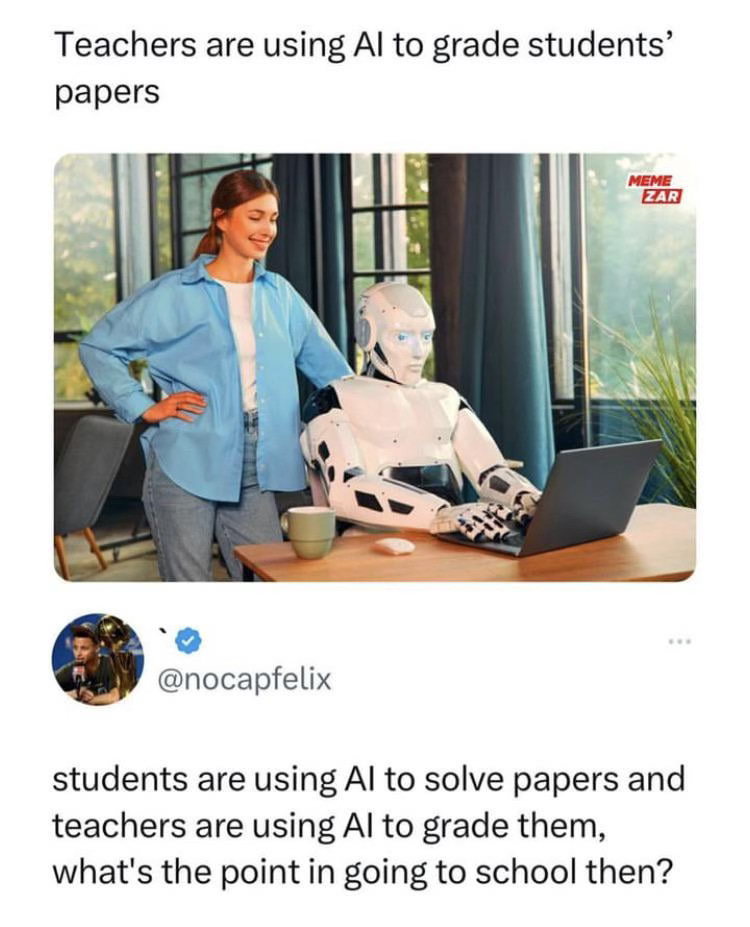Where we explore organic content (043)
Exploring many kinds of human-machine augmentation.
Happy Monday and welcome to another issue of Artificial Insights, your weekly guide to the many forms of arbitrary intelligence.
It is easy to become caught up in the hype around everything AI is capable of doing. This very newsletter is often guilty of filtering away the negative and focusing mostly on the positive capabilities of our tools. Depending on your perspective, (generative) AI is either a one-way street toward a complete unknown, or autocomplete on steroids blackboxing intelligence.
I don’t have a definitive take, and rather enjoy exploring the liminal space between either perspective.
For example, earlier today I tried generating an intro for this week’s newsletter with GPT-4, using all the usual best practices of providing training data (42 previous intros), producing a style guide, indicating vocabulary to avoid and structuring my ask around guiding questions and examples – and yet 10/10 suggested outputs were crap. Uninspired, flat and obvious. Uninteresting and impersonal.
Since the first days of writing this newsletter, people have been asking me whether I’ve outsourced work to an AI. The answer remains: every week I try new angles and approaches, but still find myself doing 80-100% of the work. Despite having a fairly formulaic approach to editing the newsletter, GenAI still doesn’t get it, and more often than not, takes away from the actual joy of writing.
Each week I select a handful of links which capture some of the ideas shaping the emerging capabilities of AI, as well as personal projects and commentary. Before jumping into this week’s links, here are some things we’ve been working on:
🪷 Personal purpose: since last year we’ve been developing a web experience which helps you identify your passions and identify where they overlap, with the help of GPT. The feedback has been overwhelmingly positive, and we will soon offer group workshops online. Email or DM if you’d like to give it a try.
📇 Emerging vocabulary: Earlier editions of this newsletter featured weekly definitions of terms and concepts used to understand AI (like Alignment, Hallucination, etc). To expand on this idea, we are working on a knowledge graph mapping out the areas and terms defining the field. Learn more on our WhatsApp.
💬 WhatsApp group: Don’t miss our new group chat. Thanks to readers like you, this has now become my favorite place to find and share new ideas.
Until next week,
MZ
Deep interview about AGI, open-source and the future.
Yann Lecun is infinitely interesting and this three-hour interview on YouTube is no exception. Difficult to summarize but I highly recommend listening to snippets or the whole thing. Yann has deep technical understanding with a cross-cultural perspective, and manages to explain concepts and implications like no-one else.
I see the danger of this concentration of power to proprietary AI systems as a much bigger danger than everything else... I believe that people are fundamentally good and so if AI, especially open-source AI, can make them smarter, it just empowers the goodness in humans.
Hands-on strategies and approaches for working with AI
Highly recommended, impactful webinar with practical applications of AI by Allie K Miller. Loads of best practices and mental models for how to further integrate automation into your professional life.
ChatGPT now has competition
Anthropic’s Claude 3 came out last week and is pretty remarkable. I have featured interviews by Dario Amodei in previous editions, and recommend the following links to get a sense for what it’s capable of.
Insightful Q&A with Sergei Brin at AGI House
If you can ignore the poor sound quality, both the questions and answers are super interesting, especially considering Brin recently left retirement and is back at Google. Don’t miss part 2.
The Vivid Unknown
Fascinating podcast interview with John Fitzgerald on Voices of VR, creator of an AI-augmented video experience building on 1982’s Koyaanisqatsi. The interview details technical aspects of the implementation as well as potential implications of using such techniques. I especially liked learning about Dreambooth.
It's hard to say where all of this goes. ... It's interesting how machine learning technology keeps jumping through these short bursts of things that almost define the moment that it's created in.
If Artificial Insights makes sense to you, please help us out by:
📧 Subscribing to the weekly newsletter on Substack.
💬 Joining our WhatsApp group.
📥 Following the weekly newsletter on LinkedIn.
🏅 Forwarding this issue to colleagues and friends.
🦄 Sharing the newsletter on your socials.
🎯 Commenting with your favorite talks and thinkers.
Artificial Insights is written by Michell Zappa, CEO and founder of Envisioning, a technology research institute.
You are receiving this newsletter because you signed up on envisioning.io or Substack.





